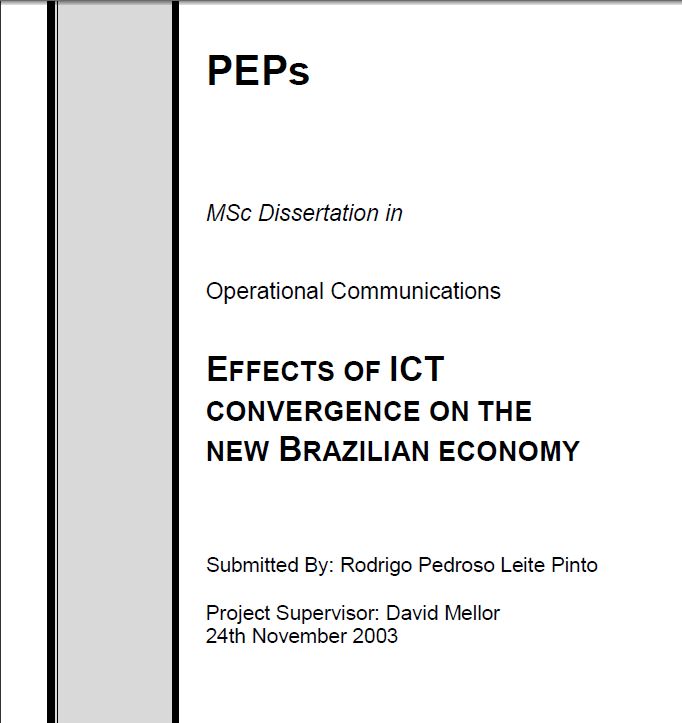Abstract
Technologic advances have led the telecommunication industry to the gates of a revolution. The amounts of gadgets and capabilities of novel networks promise to deeply change habits, to change societies in a way that would have been astonishing, if not for economic tribulations. As the expansionist and investing atmosphere gave place to profit-oriented policies around the globe on the end of the telecom boom, much remains to be defined regarding telecom market evolution.
While mature markets keep further heavy advances on hold, developing countries observe, trying to learn how to behave when their time to change arrives. Brazil, coming out of a five-year long telecom liberalization program, finds its market boiling with possibilities as the economy comes to present favourable signs once again. Because of its late start on telecom development, the country lags state-of-the-art novelties of more advance markets in a few years. This delay was wisely used to save the country from investments proven mistaken on richer countries, which contributed for faster national improvement. Still making use of this lag, Brazilian telecom market urges to see the options made by developed countries on still polemical issues as third generation mobile networks.
This document is a study about the consequences of the crisis faced by telecommunications industry on developed countries, as previous large investments were lately proven exacerbated, calling for a halt on growth. Due to the intrinsic relation of the issue with economic and political facts, the discussion strongly considers the relevant developments of those areas in both mature markets and Brazilian scenario.
To clarify the improvements and, in a general way, the changes that new technologies could bring to the society, the mid part of the document analyzes the technical advances that are puzzling mature markets today. The discussion intends to illuminate the path ahead of telecommunication markets of developing nations that, as in Brazil, matters so much for social development.

